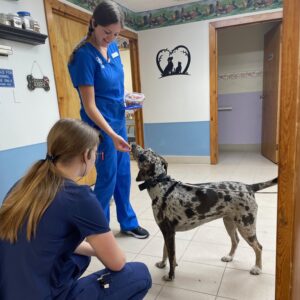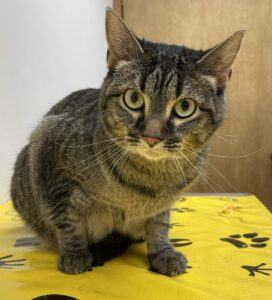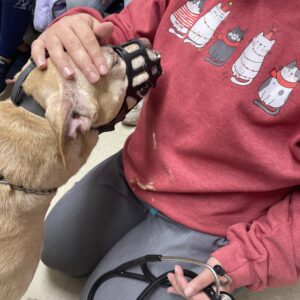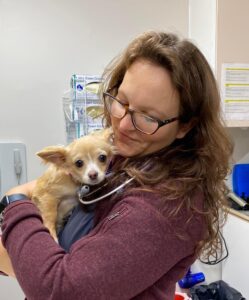Contact Us!
Canine and Feline Behavioral Consultations
Animal Doctor provides behavioral consultations for canines and felines. We accept referrals and provide second opinions.
Description: Pets may have behavioral concerns at home, away from home, when on leash, with other animals, with strangers, loud noises, storms, etc.
Symptoms & What to look for: Anxiety or aggression concerns seen with a pet that are triggered by a certain stimulus. Pacing, panting, attention seeking behaviors, inappropriate chewing and elimination, growling, biting, and lunging are all behaviors that may be seen.
How does it happen? Anxiety and reactivity behaviors may arise due to emotional trauma and/or lack of training, desensitization, and socialization as young animals.



What questions do we ask?
- What is the main behavior problem or chief complaint?
- When did the problem begin?
- When does the pet display this behavior? How often and under what circumstances?
- Has there been a change in frequency or appearance of the problem?
- What has been done to correct the problem?
- Describe the first incident?
- Describe the most recent incident?
- What persons are in the pet's environment? What are their schedules?
- Any new people or pets in the household recently?
- What other pets are in the house or on the premises?
- Where is the pet kept during the day? At night? When owner is away?
- How is the pet exercised? How and when do you play with it.
- What is the pet fed (brand of food, canned or kibble)? How often is your pet fed?
-
Does your pet have a good appetite? Does it like treats?
What are the steps we take to treat your pet and how do we arrive at a diagnosis and appropriate treatment plan?
- Complete medical exam including a full orthopedic exam if there are signs of pain.
- Blood testing may also be warranted to rule out underlying medical conditions.
-
Diagnosis of behavioral issues will be done with a complete physical exam and with a thorough behavioral questionnaire. For pets that have complicated behavioral issues, referral to a veterinary behaviorist may be recommended. For pets that need additional training beyond what the owner can do on their own at home, referral to a trainer will be recommended.
Animal Doctor Behavioral Consultations potential treatment plans?
Oral medications
- Anti-anxiety medications to help decrease anxiety and reactivity.
- Pain medications if indicated on exam.
Referral
- Training programs are recommended depending on the type of behavioral issue present.
- We may recommend referral to a veterinary behaviorist if the behavioral issues are too complex.
What are the risks if behavioral issues are left unmanaged?
Behavior issues disrupt the human-animal bond. Pets that become aggressive pose a bite risk for all people in the household. Behavioral issues cause stress for the entire household and are the most common underlying reason for pet surrender to animal shelters and rescues. The best way to treat behavioral issues in pets is by preventing them from occurring in the first place. Providing appropriate training to all new pets is by far the best prevention available.
Animal Doctor Provider
Dr. Versch











